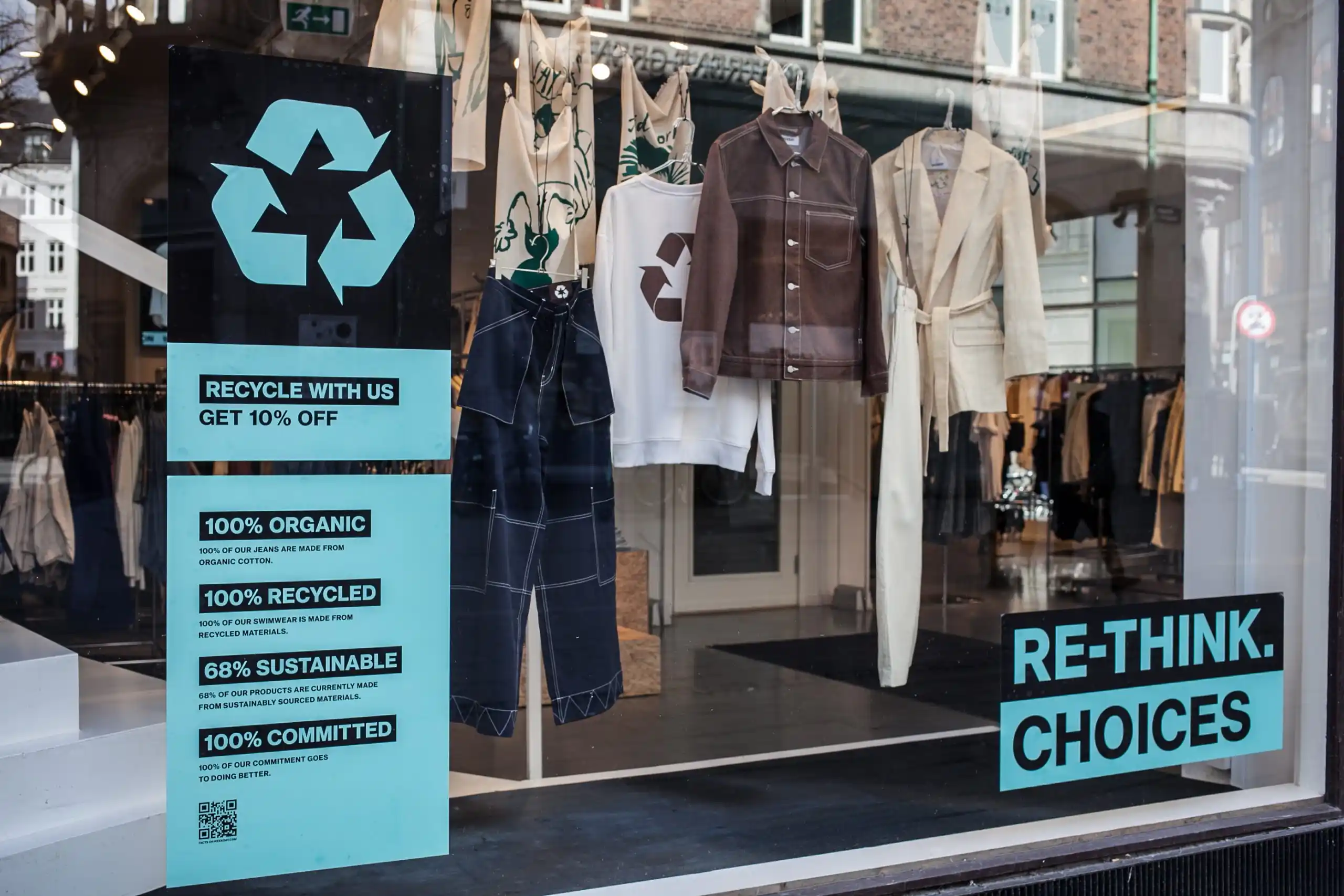Sustainable Fashion and Recycling: Your Path to Eco-Friendly Style
Article: Sustainable Fashion and Recycling Sustainable fashion has become an increasingly important topic in today's world, where environmental concerns are at the forefront of global discussions. As consumers and industries alike recognize the negative impact of fast fashion on the environment, the concept of sustainable fashion and recycling has gained momentum. This article explores the significance of sustainable fashion and recycling, its benefits, recycling techniques in the fashion industry, ways to promote sustainable fashion, innovations in the field, as well as the challenges and solutions associated with it.

In recent years, sustainable fashion has emerged as a solution to the detrimental effects of the fashion industry on the environment. Sustainable fashion encompasses a wide range of practices, including the use of environmentally friendly materials, ethical production processes, and recycling initiatives. By adopting sustainable fashion practices, we can minimize the environmental footprint of the fashion industry and create a more responsible and eco-conscious approach to clothing.
Environmental Impact of Fast Fashion
Fast fashion, characterized by its quick production and consumption cycles, has a significant impact on the environment. One of the major concerns is water pollution caused by the extensive use of chemicals in textile dyeing and finishing processes. These chemicals often find their way into water bodies, harming aquatic life and ecosystems. Additionally, the production of textiles generates a substantial amount of waste, contributing to landfills and increasing textile waste. Furthermore, the carbon emissions associated with the production, transportation, and disposal of fast fashion items contribute to climate change.
Read more About The Shein Controversy: A Deep Dive into the Fashion Industry’s Ethical Practices
Benefits of Sustainable Fashion

Sustainable fashion offers numerous benefits that go beyond environmental considerations. By embracing sustainable fashion practices, we can conserve resources by reducing the reliance on non-renewable materials. Recycling and upcycling initiatives help minimize waste and extend the lifecycle of garments. Moreover, sustainable fashion promotes ethical production practices, ensuring fair treatment of workers and improving working conditions in the fashion industry. It also aligns with the concept of eco-friendly gifts, allowing individuals to choose presents that are both thoughtful and sustainable.
Recycling in the Fashion Industry
Recycling plays a crucial role in making the fashion industry more sustainable. Textile recycling techniques involve breaking down old or unwanted clothing into fibers that can be used to create new fabrics. This process reduces the demand for new raw materials, saving energy and reducing environmental impact. Additionally, upcycling and repurposing garments give new life to old clothing, promoting creativity and reducing waste. Adopting a circular economy approach in fashion encourages the reuse, repair, and recycling of clothing to minimize resource consumption. Some fashion companies are even exploring innovative ways to recycle waste and use unusual materials to create new fashion pieces, showcasing the industry’s commitment to sustainability.
Promoting Sustainable Fashion
To drive the shift towards sustainable fashion, conscious consumerism is essential. By making informed choices and supporting brands that prioritize sustainability, consumers can influence the industry positively. Shopping from sustainable brands that follow ethical practices and use environmentally friendly materials is a significant step in the right direction. Moreover, clothing rental and sharing platforms allow individuals to enjoy fashion without the need for excessive consumption, promoting a more sustainable approach to dressing. This approach aligns with the concept of Nudge Theory, where small changes in behavior can lead to significant sustainable change in the fashion and retail sectors.
Innovations in Sustainable Fashion

The fashion industry is witnessing exciting innovations in sustainable fashion. Sustainable clothing brands like Patagonia, Eileen Fisher, Veja, and Alternative Apparel. are at the forefront, designing and producing garments that are eco-friendly and socially responsible. These brands prioritize sustainable materials, ethical production practices, and fair trade principles. In addition to sustainable fabrics like organic cotton and hemp, there is a rising interest in alternative materials such as vegan leather and cactus leather, which offer cruelty-free alternatives to traditional leather production. Furthermore, advancements in technology have opened up new possibilities for sustainability. 3D printing technology allows for customized clothing production, minimizing waste by creating garments tailored to individual measurements. Moreover, the rise of digital fashion and virtual reality presents new opportunities to reduce material consumption by exploring virtual fashion experiences.
Challenges and Solutions
Despite the progress made in sustainable fashion, several challenges persist. Lack of awareness among consumers and limited accessibility to sustainable options hinder widespread adoption. However, collaboration between fashion brands, government bodies, and educational institutions can help raise awareness and promote sustainable practices. Additionally, addressing the cost disparity between sustainable and fast fashion alternatives and improving accessibility to sustainable options are crucial for encouraging broader adoption. Education and information campaigns can bridge the knowledge gap and empower consumers to make sustainable choices.
Conclusion
Sustainable fashion and recycling offer a path toward a more environmentally conscious and responsible fashion industry. By recognizing the environmental impact of fast fashion and embracing sustainable practices, we can reduce waste, conserve resources, and promote ethical production. Innovations in sustainable fashion, such as the use of eco-friendly materials and advancements in technology, provide exciting opportunities for a more sustainable future. The challenges can be overcome through collaboration, education, and increased accessibility. Let’s make sustainable fashion the new norm and create a positive impact on our planet.
FAQs
1. What is sustainable fashion?
Sustainable fashion refers to clothing and accessories produced and consumed in a way that minimizes negative environmental and social impacts. It focuses on ethical production practices, the use of eco-friendly materials, and recycling initiatives.
2. Why is sustainable fashion important?
Sustainable fashion is essential because the fashion industry has a significant environmental footprint, contributing to pollution, waste, and climate change. By adopting sustainable practices, we can mitigate these negative impacts and create a more sustainable future.
3. How can consumers promote sustainable fashion?
Consumers can promote sustainable fashion by making conscious choices, supporting brands that prioritize sustainability, and opting for clothing rental and sharing platforms. By being informed and mindful consumers, individuals can drive positive change.
4. What are some innovative trends in sustainable fashion?
Innovations in sustainable fashion include the use of sustainable fabrics like organic cotton and hemp, 3D printing for customized production, and the emergence of digital fashion and virtual reality experiences.
5. What are the challenges in adopting sustainable fashion?
Some challenges in adopting sustainable fashion include limited awareness among consumers, cost disparities between sustainable and fast fashion options, and limited accessibility to sustainable alternatives. However, collaboration and education can help overcome these challenges.




